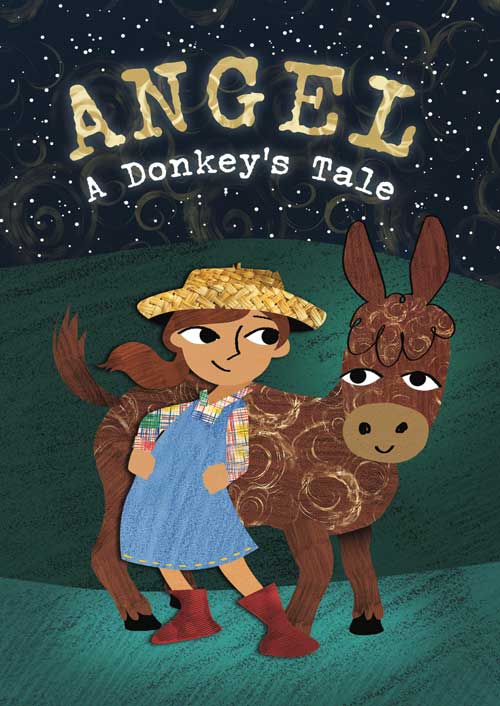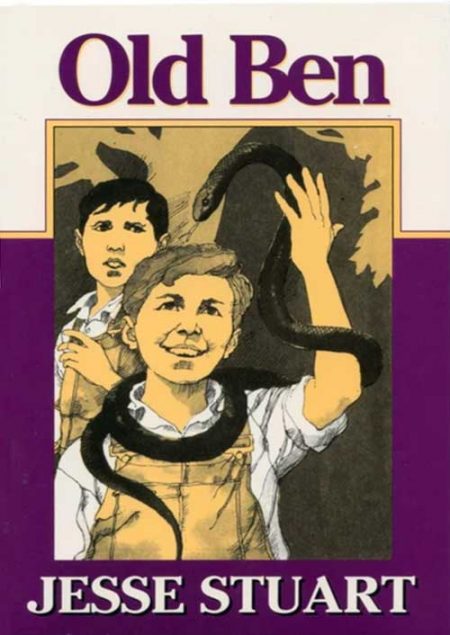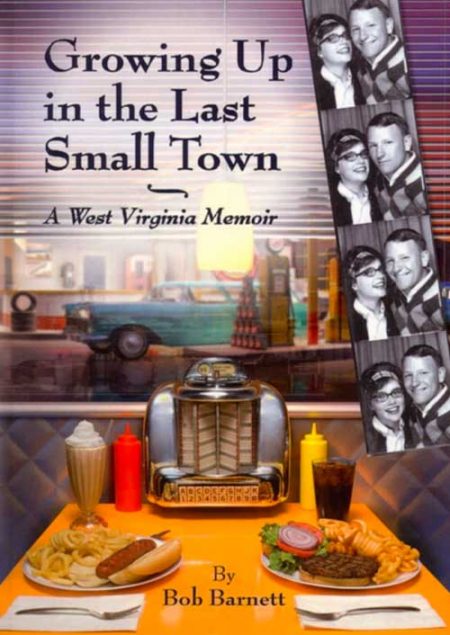-
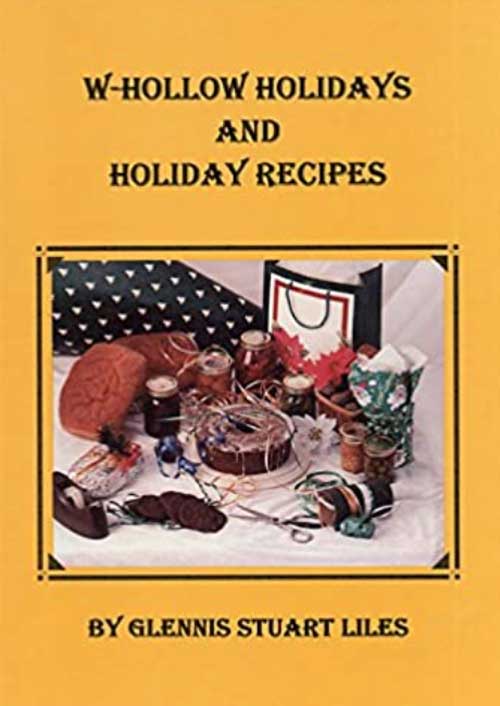 In her Introduction, Glennis Stuart Liles provides some historical background on Greenup and Greenup County and then she focuses on her parents and her family in “W-Hollow Holidays and Holiday Recipes." “My parents, Martha and Mitchell Stuart, married at Plum Grove (Greenup County) and went to house keeping in W-Hollow just over the hill from the town of Greenup. They lived there until they died in the early fifties. They, and their neighbors, grew their vegetables on the rocky hillsides, milked cows, and killed their own meat. Everyone was poor, but they did their best to make holidays special. The most important part of each holiday was the food. It was served in the dining room, on a fancy tablecloth with cloth napkins and their best silverware and china. The recipes in this book are special to the people of W-Hollow. They have been used over and over on special occasions – some for more than one-hundred-fifty years.” HARDBACK VERSION By Glennis Stuart Liles
In her Introduction, Glennis Stuart Liles provides some historical background on Greenup and Greenup County and then she focuses on her parents and her family in “W-Hollow Holidays and Holiday Recipes." “My parents, Martha and Mitchell Stuart, married at Plum Grove (Greenup County) and went to house keeping in W-Hollow just over the hill from the town of Greenup. They lived there until they died in the early fifties. They, and their neighbors, grew their vegetables on the rocky hillsides, milked cows, and killed their own meat. Everyone was poor, but they did their best to make holidays special. The most important part of each holiday was the food. It was served in the dining room, on a fancy tablecloth with cloth napkins and their best silverware and china. The recipes in this book are special to the people of W-Hollow. They have been used over and over on special occasions – some for more than one-hundred-fifty years.” HARDBACK VERSION By Glennis Stuart Liles -
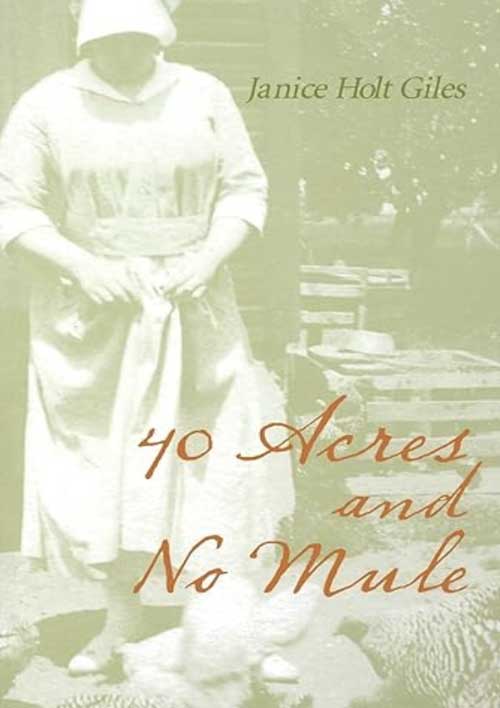 In the late 1940s, Janice and Henry Giles moved from Louisville, Kentucky, back to the Appalachian hill country where Henry had grown up and where his family had lived since the time of the Revolution. With their savings, the couple bought a ramshackle house and forty acres of land on a ridge top and set out to be farmers like Henry's forebears. To this personal account of the trials of a city woman trying to learn the ways of the country and of her neighbors, Janice Holt Giles brings the same warmth, humor, and powers of observation that characterize her novels. Enlightening and evocative, personal and universally pertinent, this description of a year of "backaches, fun, low ebbs, and high tides, and above all a year of eminent satisfaction" will be welcomed by Janice Holt Giles's many readers, old and new. Janice Holt Giles (1905-1979), author of nineteen books, lived and wrote near Knifley, Kentucky, for thirty-four years. Her biography is told in Janice Holt Giles: A Writer's Life. SOFTBACK VERSION By Janice Holt Giles
In the late 1940s, Janice and Henry Giles moved from Louisville, Kentucky, back to the Appalachian hill country where Henry had grown up and where his family had lived since the time of the Revolution. With their savings, the couple bought a ramshackle house and forty acres of land on a ridge top and set out to be farmers like Henry's forebears. To this personal account of the trials of a city woman trying to learn the ways of the country and of her neighbors, Janice Holt Giles brings the same warmth, humor, and powers of observation that characterize her novels. Enlightening and evocative, personal and universally pertinent, this description of a year of "backaches, fun, low ebbs, and high tides, and above all a year of eminent satisfaction" will be welcomed by Janice Holt Giles's many readers, old and new. Janice Holt Giles (1905-1979), author of nineteen books, lived and wrote near Knifley, Kentucky, for thirty-four years. Her biography is told in Janice Holt Giles: A Writer's Life. SOFTBACK VERSION By Janice Holt Giles -
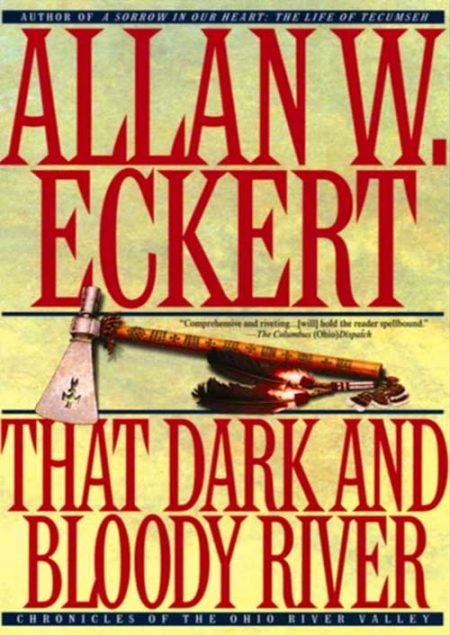 The Ohio River, a principal route for pioneers pushing westward along its 981-mile course from Pennsylvania through Kentucky and Indiana to Illinois, was the scene of fierce battles among warring Indian tribes, Shawnee, Miami, Cherokee, Iroquois, etc., and between Native Americans and white settlers. Tapping journals, letters, diaries and government memoranda from 1768 to 1799, and fleshing out his panoramic chronicle with reconstructed dialogue adapted from primary sources, historian-novelist Eckert has fashioned an epic narrative history of the struggle for dominance of the Ohio River Valley that makes compelling reading. The lives of notable pioneer families (Zanes, Bradys, Wetzels), incursions of traders, explorers, colonists, adventurers and the historic exploits of George Washington, Daniel Boone, George Rogers Clark and others intersect. SOFTBACK By Allan Eckert
The Ohio River, a principal route for pioneers pushing westward along its 981-mile course from Pennsylvania through Kentucky and Indiana to Illinois, was the scene of fierce battles among warring Indian tribes, Shawnee, Miami, Cherokee, Iroquois, etc., and between Native Americans and white settlers. Tapping journals, letters, diaries and government memoranda from 1768 to 1799, and fleshing out his panoramic chronicle with reconstructed dialogue adapted from primary sources, historian-novelist Eckert has fashioned an epic narrative history of the struggle for dominance of the Ohio River Valley that makes compelling reading. The lives of notable pioneer families (Zanes, Bradys, Wetzels), incursions of traders, explorers, colonists, adventurers and the historic exploits of George Washington, Daniel Boone, George Rogers Clark and others intersect. SOFTBACK By Allan Eckert -
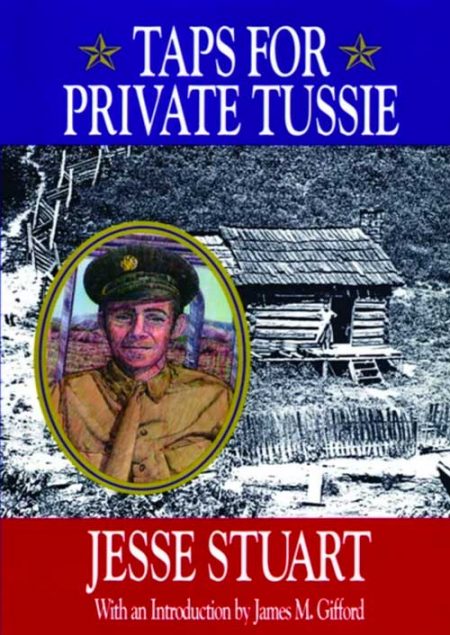 Taps for Private Tussie won the Thomas Jefferson Southern Award in 1943, and was a Book-of-the-Month Club selection that year, also. This tale about the Tussie family is a brimming mountain spring of hilarious fun and folklife. Yet never was a book read more eagerly to see what in the world will happen next. This tale is not just a story of poor white Southern mountaineers on relief. There is something universal about it. It reveals an attitude towards human life and its problems, found in people, places, and times that have no connection with Southern mountaineers. By Jesse Stuart
Taps for Private Tussie won the Thomas Jefferson Southern Award in 1943, and was a Book-of-the-Month Club selection that year, also. This tale about the Tussie family is a brimming mountain spring of hilarious fun and folklife. Yet never was a book read more eagerly to see what in the world will happen next. This tale is not just a story of poor white Southern mountaineers on relief. There is something universal about it. It reveals an attitude towards human life and its problems, found in people, places, and times that have no connection with Southern mountaineers. By Jesse Stuart -
Sale!
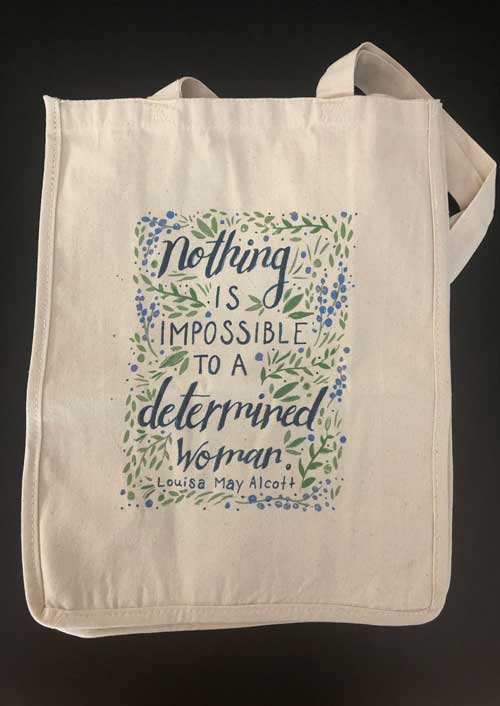
"Nothing is impossible to a determined woman."
This quote by Louisa May Alcot adorns a beautiful tote bag available at the Jesse Stuart Foundation. This large, 100 percent cotton bag is more than 16 inches deep, and it will handle books, bottles, groceries, mail and anything else you choose to carry. The bag normally retails for $35.00. You can purchase it for $28.00 on this website. It will make a meaningful gift to the "determined woman" in your life. -
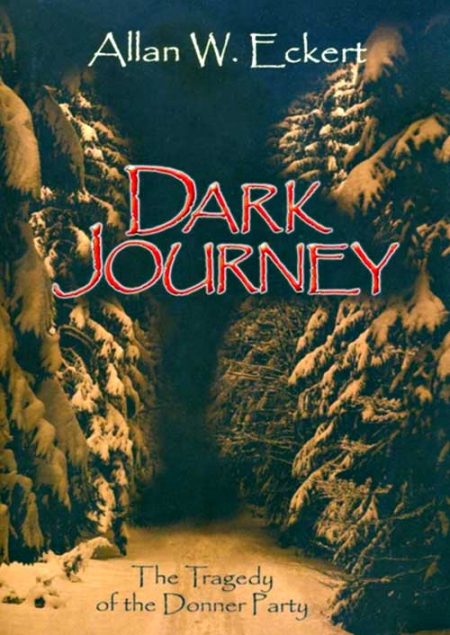 Winning of the West: Book 1 This riveting book may well be the most historically accurate and detailed telling of the 1846-47 Donner-Reed Party's traumatic journey to California. Of the hundreds of wagon trains traveling west, only the Donner Party left an indelible imprint on our national imagination, the wagon trains fame sealed by its terrible fate. Eckert's masterful telling brings alive the Donner Party's 88 members and the fates of the eleven families and numerous single men who risked all, of whom just 51 survived. He enriches the compelling tale with vivid descriptions of the colorful characters, both in the party and among those they met: mountain men, native peoples both hostile and helpful, and more. This poignant and dramatic account provides a rigorously accurate and comprehensive telling of one of America's great pioneer sagas. SIGNED HARDBACK By Allan Eckert
Winning of the West: Book 1 This riveting book may well be the most historically accurate and detailed telling of the 1846-47 Donner-Reed Party's traumatic journey to California. Of the hundreds of wagon trains traveling west, only the Donner Party left an indelible imprint on our national imagination, the wagon trains fame sealed by its terrible fate. Eckert's masterful telling brings alive the Donner Party's 88 members and the fates of the eleven families and numerous single men who risked all, of whom just 51 survived. He enriches the compelling tale with vivid descriptions of the colorful characters, both in the party and among those they met: mountain men, native peoples both hostile and helpful, and more. This poignant and dramatic account provides a rigorously accurate and comprehensive telling of one of America's great pioneer sagas. SIGNED HARDBACK By Allan Eckert -
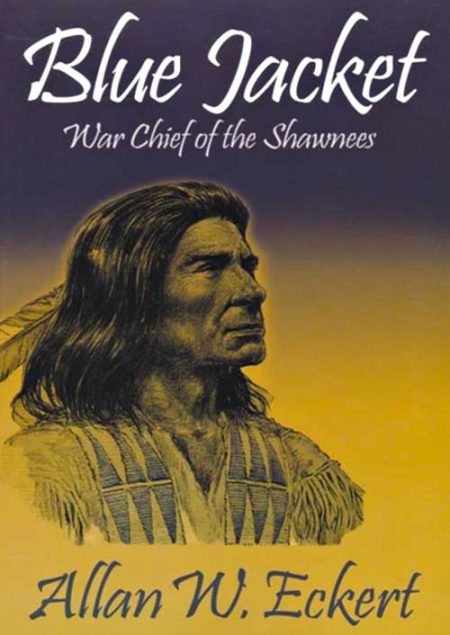 In the year 1771, a white boy named Marmaduke Van Swearingen was captured by the Shawnee Indians in what is now West Virginia, but was then the edge of the American frontier. Impressed with his bravery, he was not killed but instead was taken to Ohio where he was adopted into the tribe and given the name Blue Jacket, from the blue shirt he was wearing at the time of his capture. Eckert has taken all of the known facts of Blue Jacket's life and has woven them into a narrative of compelling interest, with a very different perspective on the way America was settled. The reader will learn what life was really like on the dangerous frontier wilderness that was West Virginia, Kentucky and Ohio before the Revolutionary War. By Allan Eckert
In the year 1771, a white boy named Marmaduke Van Swearingen was captured by the Shawnee Indians in what is now West Virginia, but was then the edge of the American frontier. Impressed with his bravery, he was not killed but instead was taken to Ohio where he was adopted into the tribe and given the name Blue Jacket, from the blue shirt he was wearing at the time of his capture. Eckert has taken all of the known facts of Blue Jacket's life and has woven them into a narrative of compelling interest, with a very different perspective on the way America was settled. The reader will learn what life was really like on the dangerous frontier wilderness that was West Virginia, Kentucky and Ohio before the Revolutionary War. By Allan Eckert -
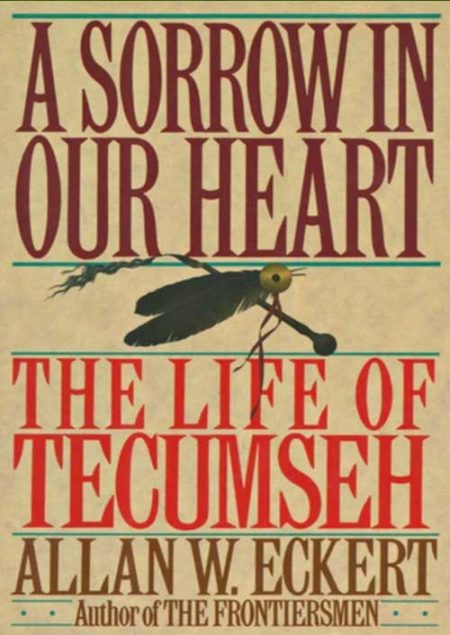 Though there are many biographies of the great Shawnee chief Tecumseh (1768-1813), this effort by historical novelist Allan W. Eckert may spark new interest — and controversy — with its "hidden dialogue" technique. After more than 25 years of research, the author felt free to recreate Tecumseh's conversations and thoughts in what proves to be an entertaining blend of fact and fiction. The orator and organizer's life was shaped by his tribe's tragic confrontation with westward-moving whites, who encroached on Native American lands along the Ohio River valley. His long struggle against this dispossession led Tecumseh to create a historic confederacy of tribes, but this crowning achievement was destroyed by his own brother at Tippecanoe in 1811. SOFTCOVER By Allan Eckert
Though there are many biographies of the great Shawnee chief Tecumseh (1768-1813), this effort by historical novelist Allan W. Eckert may spark new interest — and controversy — with its "hidden dialogue" technique. After more than 25 years of research, the author felt free to recreate Tecumseh's conversations and thoughts in what proves to be an entertaining blend of fact and fiction. The orator and organizer's life was shaped by his tribe's tragic confrontation with westward-moving whites, who encroached on Native American lands along the Ohio River valley. His long struggle against this dispossession led Tecumseh to create a historic confederacy of tribes, but this crowning achievement was destroyed by his own brother at Tippecanoe in 1811. SOFTCOVER By Allan Eckert -
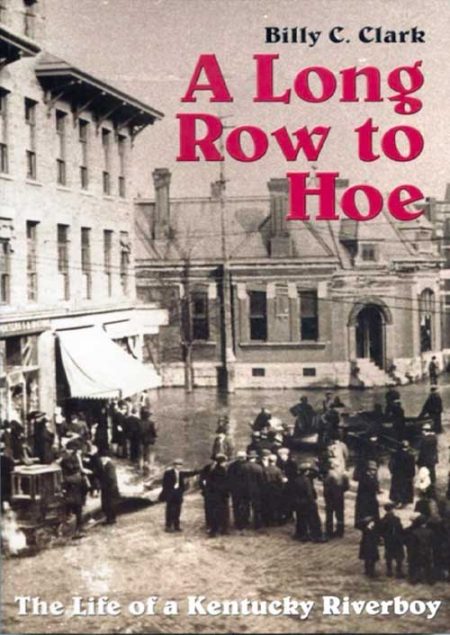 Boston University, the site of the world’s finest repository of 20th Century literature, praises Billy C. Clark as “one of the South’s most distinguished writers.” In this fascinating and highly readable book, Clark, founder and editor of Virginia Writing, writes of his own astonishingly primitive childhood in an Appalachian river town, Catlettsburg, Kentucky, at the junction of the Big Sandy and the Ohio Rivers. Billy C. Clark was a member of a sprawling, ragged family. His father was an intelligent, fiddle-playing shoemaker with little formal education. His mother often took in washing to help provide food for the family. Billy grew up in a derelict house, “The Leaning Tower,” on the banks of the Ohio. Always hungry, often dirty, and without sufficient clothing, he led an adventurous life on the two rivers, swimming, fishing, and salvaging flotsam from the frequent floods. He set trout lines for fish and trap lines for mink and muskrats, and he walked fourteen miles before school to clear his traps. He learned laughter from his magnificent mother and wisdom from his father, who taught him that “poor folks have a long row to hoe….” Billy was the only one of his family to seek an education, and through his traps, his river salvage, and odd jobs, he earned money to put himself through school. The book ends with a powerful account of his parents’ pride at his graduation. Time Magazine said that this book is “as authentically American as Huckleberry Finn.” It is a touching account of a boy and two rivers. It is a must for public and school libraries, or anyone interested in Appalachian history or literature. By Billy C. Clark
Boston University, the site of the world’s finest repository of 20th Century literature, praises Billy C. Clark as “one of the South’s most distinguished writers.” In this fascinating and highly readable book, Clark, founder and editor of Virginia Writing, writes of his own astonishingly primitive childhood in an Appalachian river town, Catlettsburg, Kentucky, at the junction of the Big Sandy and the Ohio Rivers. Billy C. Clark was a member of a sprawling, ragged family. His father was an intelligent, fiddle-playing shoemaker with little formal education. His mother often took in washing to help provide food for the family. Billy grew up in a derelict house, “The Leaning Tower,” on the banks of the Ohio. Always hungry, often dirty, and without sufficient clothing, he led an adventurous life on the two rivers, swimming, fishing, and salvaging flotsam from the frequent floods. He set trout lines for fish and trap lines for mink and muskrats, and he walked fourteen miles before school to clear his traps. He learned laughter from his magnificent mother and wisdom from his father, who taught him that “poor folks have a long row to hoe….” Billy was the only one of his family to seek an education, and through his traps, his river salvage, and odd jobs, he earned money to put himself through school. The book ends with a powerful account of his parents’ pride at his graduation. Time Magazine said that this book is “as authentically American as Huckleberry Finn.” It is a touching account of a boy and two rivers. It is a must for public and school libraries, or anyone interested in Appalachian history or literature. By Billy C. Clark


